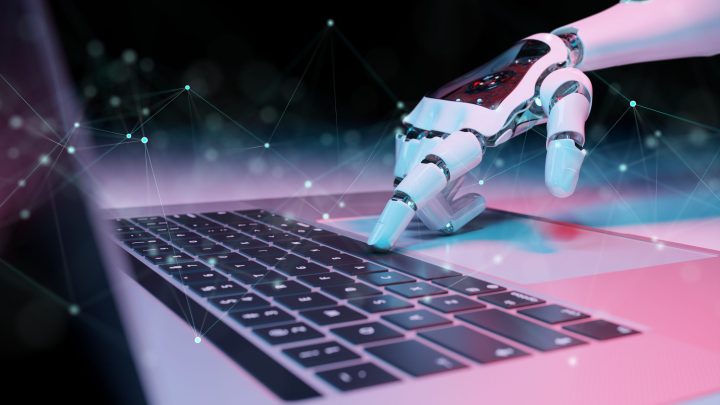
Thanks to AI, more U.S. workers worry that technology threatens their jobs
Thanks to AI, more U.S. workers worry that technology threatens their jobs

If you’re a bit anxious that artificial intelligence might be coming for your job, you’re not alone: 22% of workers in the U.S. worry that technology will make their jobs obsolete, according to a Gallup poll out on Monday.
That’s a jump of 7 percentage points since the 2021 survey in a measure that had been pretty flat since Gallup started tracking it in 2017. And some workers are a lot more worried than others.
Worries about technology pushing people out of jobs are as old as capitalism. Take this 1966 film about the mainframe computer, which asks, “Would this new invention change the fate of mankind by making man himself obsolete?”
For as long as Gallup had asked people how worried they are about losing their job to technology, workers without college degrees had been the most anxious. Then came the 2022 mini-panic, said Lydia Saad, director of U.S. social research at Gallup.
“This almost exclusively happened among college graduates — not folks without a college degree,” she said. “And so that’s telling us really that we’re talking about ChatGPT.”
But technology has never really killed jobs as much as it’s changed them, according to Susan Houseman, an economist with the Upjohn Institute.
“So we have to remember that technology is always displacing some people in the economy, but the economy is continually creating new jobs and new types of work,” she said.
Think back to the wave of automation and offshoring in the 1990s and early 2000s. Lots of factory workers lost their jobs, but they were absorbed back into the economy relatively quickly. AI may be a bit different, though.
“This time, many sectors are automating at the same time,” said Subodha Kumar, who teaches at Temple University’s Fox School of Business. “So the amount of workforce that will get displaced — it will be much more than what we have seen in the past.”
It’ll happen faster too, Kumar added.
Another difference? “It does so happen that folks in white-collar jobs do tend to make more money and maybe will have more influence,” said Edward Cone of Oxford Economics.
That means that — fairly or not — when it comes to pushing for government support, these workers might have an easier time of it.
Additional reporting by Maya Marchel Hoff.
There’s a lot happening in the world. Through it all, Marketplace is here for you.
You rely on Marketplace to break down the world’s events and tell you how it affects you in a fact-based, approachable way. We rely on your financial support to keep making that possible.
Your donation today powers the independent journalism that you rely on. For just $5/month, you can help sustain Marketplace so we can keep reporting on the things that matter to you.

















